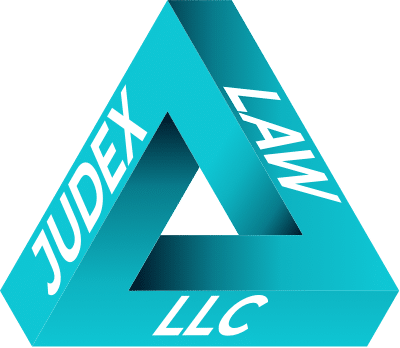After many long months of tense anticipation and public concern, the Financial Industry Regulatory Authority (FINRA) has succeeded in implementing a series of amendments to its Codes of Arbitration Procedure. These sweeping changes considerably alter the process relating to the expungement of customer dispute information, making it much more difficult for financial institutions and individual brokers to have erroneous or damaging customer dispute information expunged from the Central Registration Depository (CRD) and BrokerCheck. Unfortunately, financial advisors who find themselves the targets of unfair or baseless customer complaints may face significant challenges in having these damaging complaints expunged from publicly available databases. Although the FINRA expungement request process was rarely straightforward or simple, these newly adopted amendments further restrict and complicate the process for financial advisors and brokerage firms. These rule changes officially took effect on October 16, 2023, but many individuals and firms throughout the financial industry still need further guidance and clarification as to how these amendments reshape and impact the expungement request process. This post will highlight some of the key amendments and their likely impacts, as well as the benefits of working with a knowledgeable and trusted securities law attorney to help you pursue a FINRA expungement request.
The Motivation for FINRA’s Amendments
First, it’s helpful to understand what factors drove FINRA’s pursuit of amendments to its already established Codes of Arbitration Procedure. According to FINRA, the top reason for modifying the existing procedures was “to provide greater transparency and consistency regarding the arbitrator list selection process, and to clarify the application of certain procedures and include expressly these procedures in various rules in the Codes.” Essentially, FINRA sought to clarify the existing procedures for holding expungement hearings and make these proceedings more transparent for all parties involved. Moreover, FINRA focused on implementing ways to encourage more active participation from customers and state securities regulators.
Understanding How Customer Dispute Information is Documented
One of FINRA’s many functions is to operate the Central Registration Depository (CRD). The CRD serves as the central licensing and registration system for member firms and their associated persons. Member firms may use the information that appears in the CRD, such as an individual advisor’s investment-related, customer-initiated arbitrations, civil litigations, or customer dispute information, for employment purposes. However, FINRA also makes certain registration information from the CRD publicly available through a searchable database called BrokerCheck. This free online tool allows investors and members of the public to access background information on an individual advisor. Unfortunately, FINRA does not investigate the accuracy or truthfulness of a customer complaint before adding the information to the CRD. This means that baseless accusations or downright false information may appear in the CRD and on BrokerCheck, causing substantial damage to a broker’s professional reputation and employment prospects. A broker wishing to have customer dispute information removed from these databases may pursue an expungement request. However, the newly adopted amendments have made this process more challenging and restrictive for financial advisors.
The Major Amendments and Their Likely Impacts
Although the Securities and Exchange Commission (SEC) formally approved several of FINRA’s proposed amendments, let’s focus on four core changes and their likely impact on the expungement request process. These changes affect three types of expungement requests: customer arbitration, on-behalf-of requests, and straight-in requests.
Establishing a Special Arbitrator Roster
Under FINRA’s new rules, expungement requests will be decided by a panel of three Specialized Arbitrators who have received enhanced expungement training and who qualify as public arbitrators. The panel will be randomly selected from the Special Arbitrator Roster.
The Arbitration Panel Must Be Randomly Generated
A newly established list selection algorithm will randomly select three public arbitrators from the Special Arbitrator Roster to oversee an expungement request. Additionally, the parties are prohibited from agreeing to fewer than three arbitrators, striking any arbitrators selected by the list selection algorithm, or stipulating to the removal of an arbitrator.
Expungement Hearing Rules and Requirements
FINRA adopted amendments to expand the expungement hearing requirements and clarify certain rules for these proceedings. For instance, the amendments require the individual requesting the expungement to appear in person or by video conference at the expungement hearing. Moreover, the new rules encourage customer attendance and participation by phone, in person, or by video conference during the hearing, and the Department of Resolution Services (DRS) must notify state securities regulators of expungement requests that have been filed. State securities regulators are also encouraged to attend and participate in expungement hearings under these new amendments.
Expungement Reward Requirements
In order for the panel to grant expungement relief, the three arbitrators must unanimously agree to honor this request. The panel must identify specific documentary or testimonial evidence to support their reasoning for awarding expungement relief. These requirements aim to make the panel’s decisions more transparent for all parties involved.
How a Securities Law Attorney Can Help You Achieve Your Goals
As a financial advisor, your professional reputation is everything. Even if a customer complaint is untrue or baseless, the mere fact that this dispute appears on your profile can cause irreparable damage to your reputation and career. However, you have the right to seek an expungement request, even if FINRA’s newly adopted amendments make this process more difficult and intimidating. Your best option is to enlist the guidance and support of a knowledgeable and experienced securities law attorney who can help you identify the most strategic path forward. Your attorney will answer your questions, address your concerns, and empower you to regain control of your future. Together, you can navigate every step of the expungement request process, working hard at every turn to maximize your chances of success.
If you are struggling with unfair or false customer dispute information that is damaging your professional reputation, contact Judex Law, LLC, for trusted and effective legal guidance. Call our office today at (303) 523-4022 to discuss your options for pursuing a FINRA expungement request to keep your future as bright as possible.

